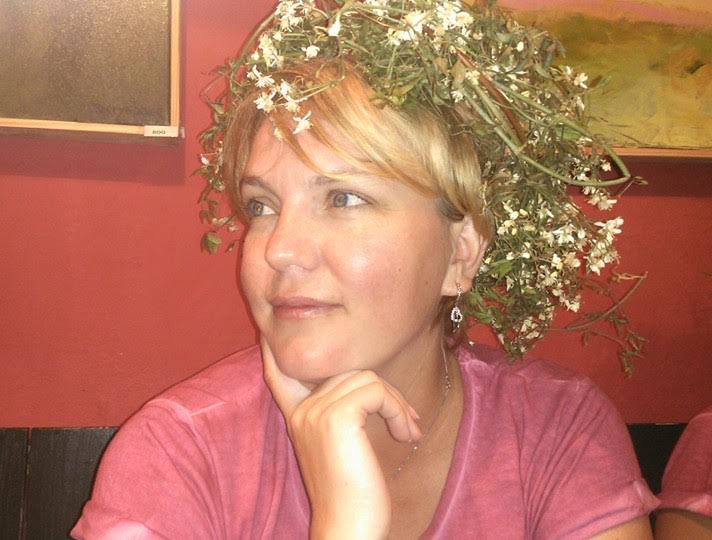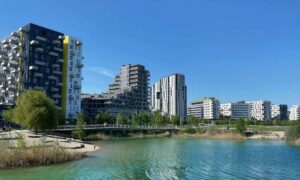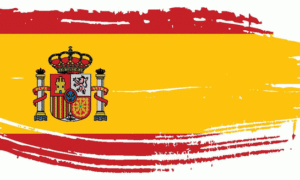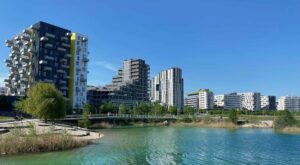(Editor’s note: This is Pt.2 of a two-part seminar on buying a property in Spain. See Pt. 1 here.)
Having found a suitable property to buy in Spain, what’s next?
Although it is not compulsory, it is advisable to employ the services of a lawyer (abogado). Often the estate agent will have a preferred one in mind and will almost certainly try to point you in their direction. However the most prudent course of action would be to ask around and to appoint your own “independent” lawyer who is registered with the local bar association (Colegio de Abogados).
The lawyer will have a registration number, so ask for it. Then if you wish, you can verify their membership with the bar association. For peace of mind you should also check that they have Professional Indemnity Insurance (and how much), so that if things do go wrong you are covered by their insurance.
Buying Properties
Having found the property that I wanted, I made an offer through our lawyer. Initially, my offer of 10-percent less than the asking price was rejected; a second offer at 5 percent off the already low asking price was subsequently accepted.
The acceptance of the offer and the purchase price was conveyed to me in writing and a 1,000 euro deposit was paid; effectively this was to “remove the property from the market.” This small deposit was quickly followed by a larger 10-percent deposit.
Beware that if you back out at this stage you’ll likely lose your deposit. Conversely, if the seller backs out, they would be required to pay you twice the deposited amount. Now, in my case the lawyer acting stipulated certain scenarios under which I could back out without forfeiting my deposit.
Following all the necessary checks (this includes a document you should come across and be familiar with when buying any property which is the nota simple) and surveys I agreed to 30 days in which to exchange contracts.
Make sure that your money is in your Spanish bank account in good time and never pay the balance by bank transfer (our advisor told us some real horror stories) instead arrange for a bankers draft (I paid Bankia only 20€ for mine) and take it with you to the NOTARY on the day of exchange.
Nota Simple
What is the Nota Simple and why is it important? A Nota Simple is a snapshot, a comprehensive property report obtained from the local property registry office, it contains a detailed description of the property including;
- The year the owner purchased the property.
- Existing debts on the property that must be settled before ownership can be transferred.
- The property’s boundaries, total area of the land and buildings thereon (covering all structures).
- The defined use of the property (urban, rural, urbanizable, agricultural)
- Rights of access to the land that others may have, public paths, roads,water, sewage.
- The catastral reference. The catastral valor is an important estimate of the property’s capital value and is used to calculate the property taxes.
Note that in Spain debts are often attached to a property.
The Nota Simple is an essential document, I obtained mine via my lawyer. However for a small fee you can obtain one online (and even have it translated into English) by visiting Regestradores.com here.
Your lawyer should advise you if there is anything of concern, for example debts. Or maybe the description of the buildings don’t match what is actually there. For example, there was the well-publicised case of Spanish actor Antonio Banderas having part of his mansion demolished back in 2013 due to an extension that was built on to the property being deemed illegal.
I mentioned the Nota Simple being a snapshot, because that is exactly what it is. So if you are purchasing a property, please bear in mind that the details on the Nota Simple may change in the period between your initial interest in the property and exchanging contracts (i.e. a debt may be attached to the property).
Another link that you may find of use is a website that provides some basic FREE information on all properties such as the size of the property, the year it was built, number of rooms, the size of each room, and of course the catastral number.
The Notary
A Spanish Notary is involved in preparing the contract of sale and the issuing of public deeds. You as purchaser will have the right to appoint whichever notary you wish, though in practice your lawyer will recommend one.
The Notary is a well respected and key public servant in Spain. Their role, or brief if you like, is to provide you with FREE and IMPARTIAL legal advice** pertaining to the contract of sale. During the my meeting presided over by the notary and at which the contracts were exchanged, he went through each and every clause, explaining them to us and ensuring that both parties understood the terms of the contract. Incidentally, the notary is also the person responsible in ensuring that the appropriate taxes arising from the transaction are paid.
** Once you have a date to exchange contracts you can arrange to visit the notary and ask any questions that you may have in relation to the contract.
Our property purchase was relatively straight forward, though not all purchases are, and good advice is essential. We are all familiar with the horror stories relating to expats losing their homes or having to have them demolished. Taking early and proper legal advice mitigates these risks.
Other Items of interest
• Mortgages
I don’t intend to go into mortgages in any great detail, I’ll leave that for another time. However, it is an important subject so very briefly if you are looking to take out a mortgage in Spain (typically you may borrow up to 65% of the property’s value) speak to a broker and try to get an offer in principle before you start to view any properties. According to a couple of well respected brokers that I’ve spoken to they are offering rates in the region of 0.6-percent variable and 1.5-percent fixed. So if you do need further information please do not hesitate to contact me or wait until my article on mortgages and I shall reveal more.
• Brexit UPDATE
Following Brexit and the UK’s relegation to third country status there is an added headache for home buyers from the UK. A law that dates back to 1975 and General Franco requires non-EU buyers of properties within “strategic defence areas” to apply for a special permit from the Ministry of Defence. The process of applying and receiving permission can take months and affects over 1,500 municipalities across Spain including some of the most popular areas for expats including Alicante, Murcia and increasingly the Balearic Islands.
LINKS to the banks’ property pages.
This was only my experience and observation on buying property here in Spain, If you do need further information or have any questions please leave a comment or contact me by email [email protected].
PS: I highly recommend Guejar Sierra, a wonderful place to live.

About the author:
Irina Greensitt is from the far eastern town of Khabarovsk in Russia, but lived in the United Kingdom for seven years before moving to Spain in 2014 with her husband and two young children.
Irina now runs an internet business and lists walking, travel and sailing (passing her skippers exam in 2016) amongst her hobbies.
See all of Irina’s posts here.
See more from Dispatches’ Spanish archive here.














